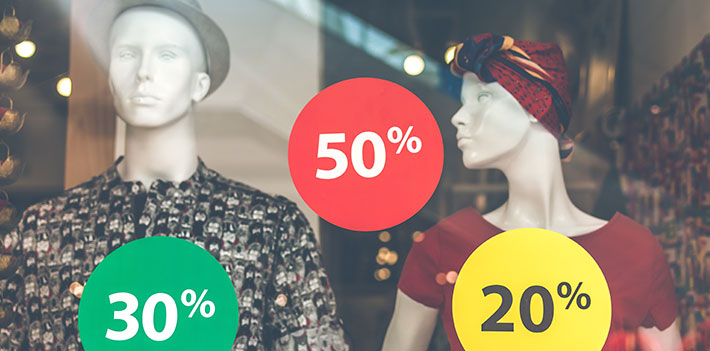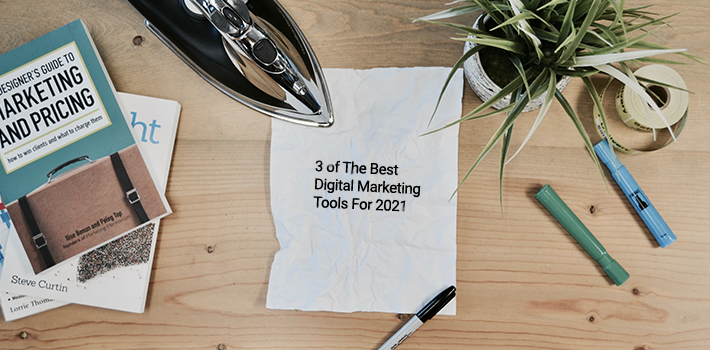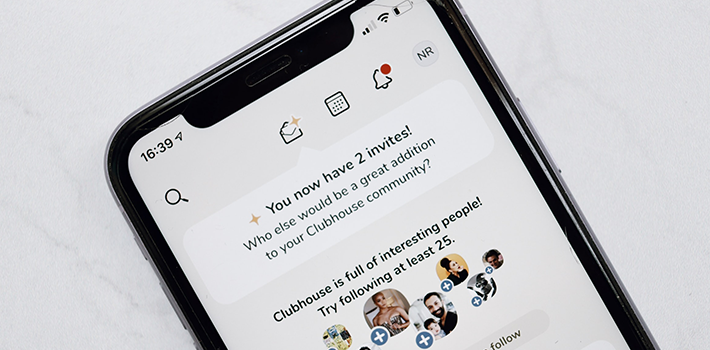This isn’t going to be some cookie-cutter article that tells you to “focus on selling the benefits, not the features” when creating a marketing campaign.
Nor is it something university lecturers are going to be rushing to teach their wide-eyed first-year students to perfect.
No – this is about the single most nefarious, yet effective, marketing technique known to man.
It can control everything from your reputation to your sales figures, to the concept of journalism as a whole – and it’s called media manipulation.
Today, we’re going to explore what media manipulation is, how effective it is, and, most importantly, whether or not you’re willing to engage in it to further your interests.
What is Media Manipulation?
According to well-known self-proclaimed media manipulator Ryan Holiday, media manipulation is using the media to make people think or do things that they otherwise wouldn’t.
You’re probably thinking, but that’s propaganda, isn’t it?
Well, yes. Sort of. It involves the same type of misinformation, shoddy journalism ethics, and biased coverage.
Except these days, it’s not just governments and political campaigns that we have to be wary of. It’s everything.
Holiday says this phenomenon shapes everything we read, hear, and watch online today. Everything we consume, from the news sources you follow to the recipe blogs you bookmark.
In fact, the best-selling author of the chillingly honest confessional “Trust Me, I’m Lying” blatantly states that we as people are simply not aware of just how much our “general world view” is influenced or skewed by the way news is generated online today.
So why does that matter to us as marketers? Well, because it’s not just online news organizations that are affected.
It’s products, companies, reputations, stock markets, business owners, presidential elections…
It’s all ruled by this contemporary form of “internet economics” that we’re participating in.
And it dictates the way all of us (your audience included) think, interact, and behave.
The economics of the internet
Holiday explains that back in the day, newspaper journalism meant that people had a limited amount of space within which they had to curate and cover important stories.
Therefore, if a news story managed to get featured by a journalist, it was guaranteed to be both important and accurate.
But with the rise of the internet and news blogs like Politico, Huffington Post, and Buzzfeed, where the ability to post news is infinite, and where each story can be monetized with incessant advertisements, the goal of editors is no longer to report on important news.
No – the goal is now to put your journalistic integrity aside and blow up the competition in the neverending rat race that is pageviews, clicks, and ad revenue.
And whether you work for the Washington Post or Politifact, unfortunately, investigative journalism, fact-checking, and objectivity will all take a backseat to make room for advertisers and clicks.
As Holiday puts it, today, “the news is decided not by what is important but by what readers are clicking.”
You need not look further than CNN’s 24/7 coverage of the Malaysian Airlines crash back in 2014.
The mainstream media network’s over-coverage practically became a worldwide meme. For weeks it was as if nothing else in the world mattered, and yet the ratings kept climbing.
And when called out by several media outlets and publishers, and even by President Barack Obama himself, CNN President Jeff Zucker simply said “clearly, the audience has spoken.”
So there you have it.
The wacky headlines, the fear-mongering, the “unnamed sources” who stir up just enough buzz to elicit the desired impact without forcing the reporters to be held accountable for quoting them…
The endless scandals and controversies that serve both as hit pieces against the “canceled” subjects or as distractions from whatever it is that the manipulators don’t want you to be paying attention to…
This new internet economics status quo dictates everything – from mass media and your political bias, to whether or not you believe vaccinations cause autism.
(FAKE NEWS, by the way. For the love of God, please vaccinate your children.)
So media manipulation is just clickbait?
Sadly, no – it’s much worse than that.
Media manipulators actually make up false stories to generate the desired discourse they want about a particular topic, person, product, or company.
They fabricate conspiracies, hoaxes, and fake news stories based on zero factual credibility to change how you think.
And it happens all the time.
Just recently, with the rise of Zoom, there were tons of stories going around about how Zoom is malware. In fact, journalists from respected newspapers like the Guardian released one on April 2nd only to be followed by a Forbes article 10 days later completely debunking that narrative.
So which is it? What is the real news? And does it matter, if you’re the CEO of Zoom and your business’ reputation has already been tarnished because of a rumor?

The same happened with ibuprofen. One minute it was to be avoided at all costs because it worsened COVID-19 and the next it was “perfectly safe”. (Bet Nurofen’s sales took a hit there for a while though, huh?)
So you have to constantly question: who manipulated the news-media to run each misleading story and why? And which headline, if any, is true?
In his book, Holiday cites a few examples of how he conjured up multiple fake stories in his career to further the interests, or rather, increase the sales, of both himself and his companies/clients.
In fact, he even leaked a story claiming he was offered a fictitious 500 thousand dollar deal to write the very book he was promoting (which, of course, ended up generating a whole bunch of buzz that helped his book sales soar)
The problem is that we never would have known any of this had he not stepped forward and blown the whistle on the covert practices going on behind the scenes.
We would have carried on believing that having a reputable name in the industry was synonymous with quality journalism, unbiased reporting and real press freedom.
But it’s so much worse than we ever could believe, he warns.
The blogs, the influencers, the vloggers, news outlets… they’re all riddled with ill-intentioned manipulators like he once was.
They’re everywhere, crawling all over social media platforms, major news outlets, and even print journalism.
They’re invisible, and they will stop at nothing to control public opinion and circulate whatever viral buzz they need to fatten up their bottom line.
And we are always none the wiser.
Very seldom are their practices as blatant as those of Rudy Giuliani, President Trump, and the partisan conspiracy theorists over at Fox News and Breitbart.
So spotting their tactics is no easy feat, be they conservatives or liberals.
The Shed at Dulwich
Don’t get us wrong – the stakes are always high.
Stock markets in their entirety have plummeted due to unsubstantiated rumors, and racist reality stars have served as president for 4 long years as a direct result of media manipulation.
But it’s been a hard year as is, and we’ve just come off an exhausting presidential election cycle that until January 20 rolls around, is yet to be truly over.
So instead, to hammer home our point, let us present to you the most light-hearted, yet shocking case study you’ll ever witness; the prime example of media manipulation at its finest – the Shed at Dulwich.
Vice’s Oobah Butler is an author who once upon a time was paid to write bogus Tripadvisor reviews for restaurants he’d never been to in London, for 13 bucks a pop.
He became obsessed with monitoring the progress of these restaurants post-review and often found that they went on to achieve considerable success.
This, of course, led him to question Tripadvisor’s credibility and the flawed concept of internet review sites in general.
Hence the birth of the Shed at Dulwich. Oobah decided to see if he could create a non-existent restaurant and get it to the top of the rankings list purely by using fake hype.
And sure enough, Oobah manipulated the mainstream press so brilliantly that his phony back yard restaurant with sponges and shaving cream for food became London’s Number 1 ranked Tripadvisor restaurant in no time.
And it is absolutely incredible to watch.
We’ll leave you to enjoy it and draw your own conclusions. But as far as we’re concerned, we are shooketh.
So it’s not all bad…
After watching a video like that, you might be thinking “ok so it doesn’t always have to be that insidious”.
And you’re right, a lot of times, media manipulation doesn’t have to be hurting anyone, so to speak.
The intention could just be to harmlessly fast track your company towards instant cultural relevance, viral buzz, and higher sales, without taking anyone down with some kind of orchestrated scandal. We’re not denying that.
In fact, that’s basically what influencer marketing campaigns are. All those sponsored videos on YouTube you see – it’s not that those are the best products. It’s just that your favorite, trusted online friends are telling you they are and they’re getting you to talk about it.
But as Holiday hauntingly frames it, “the lure of gaming you for clicks is too appealing for anyone to resist”.
You cannot unlearn what you learn in that book or what you discover when you research this topic further.
Nor can you unsee the success these tactics have brought certain manipulators, and the damage they’ve done to their victims.
So pretty soon, the opportunity to sabotage your competitor by shady means might just become too alluring to resist…
Especially when it could increase your sales overnight without anyone ever finding out what you did to get there.
Soon, that slope could become all the more slippery and that line all the more blurry.
We’re not in the business of virtue signaling here, so do with this knowledge what you will.
But it seems to us that we’ve just given you two pills.
And it’s up to you to decide: which are you going for?
The blue one or the red one?






